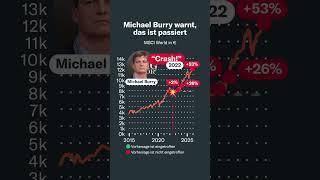| [Join YAPSS Membership, For Early Access to New Videos] https://www.youtube.com/channel/UCpzAAXa2cvyEnfc7rurcCcQ/join In this episode, Warren Buffett was asked on his thoughts on whether the continuing economic turmoil in Japan is likely to affect the global economy and the U.S. stock market over the next five to 10 years? In this episode, you’ll learn: #WarrenBuffett #CharlieMunger #BerkshireHathaway [Transcript] AUDIENCE MEMBER 00:08 I just wanted to ask you how you think the continuing economic turmoil in Japan is likely to affect the global economy and the U.S. stock market over the next five to 10 years? WARREN BUFFETT 00:28 But I would say this: I mean, the Japan problem has been around, now — in financial markets and banking systems — has been around for some time now. So, I see no reason why it should have more impact on the rest of world now than it has had in the last few years. And I would say it’s had certainly very little effect on the U.S. in the last few years. It’s not — it’s no factor in our thinking at all, in terms of what we would buy or sell tomorrow morning. I mean, if we got offered a good business tomorrow — unless it was directly involved and its primary business was in Japan — but if it was a business in this country, that’s not something that we would be thinking about. We would be thinking about the specifics of that business. We don’t really get too concerned about the things that come and go. I mean, in the end, if we’re right about a business over a 10 or 20-year period — take See’s Candy. We bought it in 1972. Look what happened in 1973 and 4, you know, and all the oil shocks and what this country was going through and inflation, all that sort of thing. For us to — and let’s say in 1972 somebody laid out a roadmap from 1972 to 1982, with the prime rate going to 21 1/2 percent, long-term rates going to 15 percent. And all of the things happening, the Dow going to 570 or what — or 560. That wasn’t the important thing. The important thing was that this peanut brittle tastes like it does, which is terrific. And that over time, we could get a little more money for it. So, you know. See’s made $4 million, pretax, in 1972, when we bought it. It made 62 million last year. It doesn’t — we don’t want to be thinking about the wrong things when we’re buying businesses. And that applies to marketable securities, just as much as it does as when we’re buying 100 percent of the business. If we’re right about the business, the macro factors aren’t going to make any difference, you know. And if we’re wrong about the business, macro factors are not going to bail us out. Charlie? CHARLIE MUNGER 02:40 Here’s a major industrial country. And we understand all about Keynesian economics and everything else. And when it starts sliding down into a big recession, it just keeps going and going, and floundering, and staying down. And year follows year, and you take the interest rates down to practically zero, and you run a big budget deficit. The economy still stays down. I think this has been very interesting to the economists of the world. I don’t think any of them would’ve predicted that as modern a country as Japan could contract for as long as it did. And I think the cause is related to the extremeness of its booms in both land prices and security prices, and the corruption in its accounting practices and in its regulation of financial system, including banks. I think it’s an interesting lesson for the world, of how important it is not to let a lot of slop get into the accounting and regulatory systems. And how a lot of folly in markets doesn’t help, either. WARREN BUFFETT 04:13 As Charlie says, it sort of defied, a little bit, some of the classical Keynesian theory on that. But in the ’30s, we had the same problem in this country. We drove interest rates way down towards the latter half of the ’30s, and — [DUE TO LIMITED WORDINGS, FOR FULL TRANSCRIPT VISIT YAPSS BLOG LINK] WARREN BUFFETT 05:00 |
Tags:







































